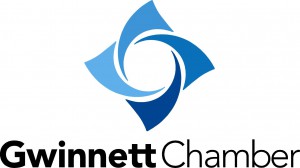Gwinnett Commissioners have amended the county’s ordinances to strengthen enforcement on residential rental properties by adopting the International Property Maintenance Code. This development follows a review process since the proposal was last before the board in February.
The adopted International Property Maintenance Code and its associated amendments aim to establish minimum standards for interior conditions at residential rental properties. The code focuses on key areas such as structural maintenance, light, ventilation and occupancy, plumbing, heating and electricity and fire safety. By incorporating these standards, the Board is taking a proactive approach to enhance the overall safety and quality of residential rental properties within the county. In turn, this policy change allows Gwinnett County code enforcement officers to work directly with tenants.
In addition to the adoption of the code, the Property Maintenance Ordinance has been updated in several other areas. Notably, the section pertaining to swimming pools, spas and hot tubs has been revised to align with current safety standards, ensuring that these recreational facilities meet the highest safety requirements for the benefit of residents and visitors.
The revised ordinance introduces new sections dedicated to specific property maintenance aspects. These include the maintenance of lighting on non-residential, hotel and multifamily properties; the upkeep of properties in a clean and sanitary condition; the maintenance of canopies and building extensions; and the maintenance of chimneys and towers. The new amendment goes into effect on July 31.
Chamber renovating offices, aims for completion in January
 The Gwinnett Chamber of Commerce has begun the largest renovation project in its history demolishing the first and second floor offices to begin construction of a newly envisioned regional center for business. The new floor plans reveal an open design with sizable collaboration space and a new outdoor event venue that utilizes the organization’s iconic pinwheel logo in its layout. Visionary renderings of the new space and its amenities will be unveiled to members via email on June 26 and posted to our renovation web page at GwinnettChamber.org/Renovation.
The Gwinnett Chamber of Commerce has begun the largest renovation project in its history demolishing the first and second floor offices to begin construction of a newly envisioned regional center for business. The new floor plans reveal an open design with sizable collaboration space and a new outdoor event venue that utilizes the organization’s iconic pinwheel logo in its layout. Visionary renderings of the new space and its amenities will be unveiled to members via email on June 26 and posted to our renovation web page at GwinnettChamber.org/Renovation.
As a reminder, membership, finance, and administration departments for the Gwinnett Chamber have temporarily relocated operations to the second floor of the building in suite 260. The remaining staff are working remotely in various partner locations throughout the community for which the team is ever grateful.
The entire project is on target for completion in January 2024.
Gwinnett gets funding for three CSX railroad crossings
Three Georgia counties – including two in metro Atlanta – will receive more than $3.2 million in federal funds for projects aimed at eliminating crashes and blockages at railroad crossings. Gwinnett County is funded for $888,000 for a feasibility study of construction alternatives for three CSX railroad crossings. The county will provide a 20 percent match for the grant. The two other counties getting this funding include DeKalb and Chatham counties.
The provided funding will be used to assess the current CSX crossings at Arcado Road, Oak Road/Gloster Road, and Hosea Road with the goal of identifying the most suitable methods for grade-separating each crossing.
The funding is part of the U.S. Department of Transportation’s (DOT) Railroad Crossing Elimination Grant Program, which is providing more than $570 million for 63 projects in 32 states in this first of four years of annual grants. The program is part of the 2021 Infrastructure Investment and Jobs Act.
The dangers of intersections of roads and railroad tracks have been highlighted in national media stories in recent months. Train collisions with motor vehicles are one danger. Another is lengthy road blockages by stopped trains, which can prevent first responders from helping people in emergencies, among other impacts.
Corbin becomes Certified Economic Developer
Norcross Economic Development Director William Corbin has earned the designation of Certified Economic Developer, a national recognition that denotes a mastery of skills in economic development, professional attainment and commitment to personal and professional growth. With 13 years of economic development experience, William manages the city’s economic development programs and services by partnering with the local business community and ensuring all business needs are met by the city. He has helped to stimulate more than $500 million of investment in Norcross, including commercial restaurant/retail projects and 2,000+ units of residential development across the price point spectrum.










Follow Us